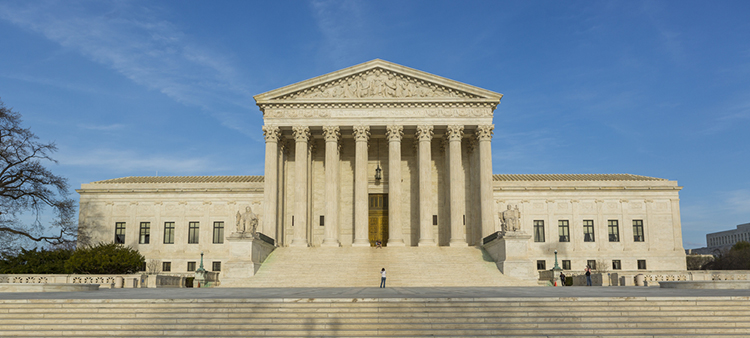Police had cause to arrest partiers in vacant home at behest of woman called Peaches, SCOTUS rules

The U.S. Supreme Court ruled Monday that police who responded to a complaint of a loud gathering at a previously vacant house had probable cause to arrest the partygoers.
In an opinion by Justice Clarence Thomas, the court ruled against partygoers who had won a $680,000 award in their lawsuit for false arrest. “Considering the totality of the circumstances,” Thomas wrote, “the officers made an ‘entirely reasonable inference’ that the partygoers were knowingly taking advantage of a vacant house as a venue for their late-night party.”
Police had knocked on the door of the house when they arrived in March 2008, and one of the partiers let them inside. Police smelled marijuana and saw women with cash tucked in their garter belts. Beer bottles and cups of liquor were left on a dirty floor. The only furniture consisted a few padded metal chairs and a bare mattress upstairs in a room with a naked woman and a group of men.
Some partygoers said they were at the home for a bachelor party, but they didn’t identify the bachelor.
Two women working the party told them a woman called “Peaches” or “Tasty” had given them permission to be there. Peaches was not on the scene and, when police called her, she eventually admitted she did not have permission to be at the house. Police contacted the homeowner, who said he was negotiating a lease with Peaches but they had not reached an agreement and she did not have permission to use the home.
Police arrested all 21 partygoers on charges of unlawful entry; the charges were changed to disorderly conduct at the police station and were later dropped. Sixteen of the partiers sued for false arrest in a civil rights suit under the Fourth Amendment, and for false arrest and negligent supervision under Washington, D.C., law.
A federal judge ruled the officers lacked probable cause to arrest the partiers for unlawful entry. In the trial for damages, jurors awarded $680,000, an award that totaled nearly $1 million with attorney fees.
The U.S. Court of Appeals for the D.C. Circuit had affirmed, finding the officers lacked probable cause to make an arrest for unlawful entry because of Peaches’ invitation. The appeals court also found the officers were not protected by qualified immunity. The U.S. Supreme Court disagreed with both findings.
Thomas pointed to the condition of the home to justify officers’ conclusion that partygoers were aware they were taking advantage of a vacant house.
“Most homeowners do not live in near-barren houses,” Thomas wrote. “And most homeowners do not invite people over to use their living room as a strip club, to have sex in their bedroom, to smoke marijuana inside, and to leave their floors filthy. The officers could thus infer that the partygoers knew their party was not authorized.”
Thomas also noted that the partygoers had reacted to the police visit by scattering, and two of the partiers hid from police. Those actions gave the officers more reason to believe the partiers lacked permission to be in the home, Thomas said.
“The circumstances here certainly suggested criminal activity,” Thomas said.
Even if the officers lacked probable cause to make the arrests, police still had qualified immunity because they reasonably concluded they had probable cause, Thomas said.
Thomas’ opinion was joined by Chief Justice John G. Roberts Jr. and by Justices Anthony M. Kennedy, Stephen G. Breyer, Samuel A. Alito Jr., Elena Kagan and Neil M. Gorsuch.
Justices Sonia Sotomayor and Ruth Bader Ginsburg wrote separate concurring opinions agreeing that police were entitled to qualified immunity. Sotomayor said the court should not have reached the probable cause issue, while Ginsburg said a future case should re-examine whether a police officer’s reasons for arrest should factor into the probable-cause inquiry.
“The court’s jurisprudence, I am concerned, sets the balance too heavily in favor of police unaccountability to the detriment of Fourth Amendment protection,” Ginsburg said.
The case is District of Columbia v. Wesby.
Related articles:
ABAJournal.com: “Chemerinsky: When can government officers be held liable?”
ABAJournal.com: “SCOTUS to consider liability for trespassing arrests of partiers who said ‘Peaches’ invited them”



